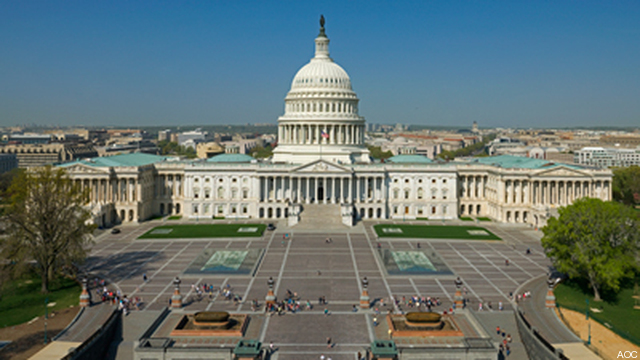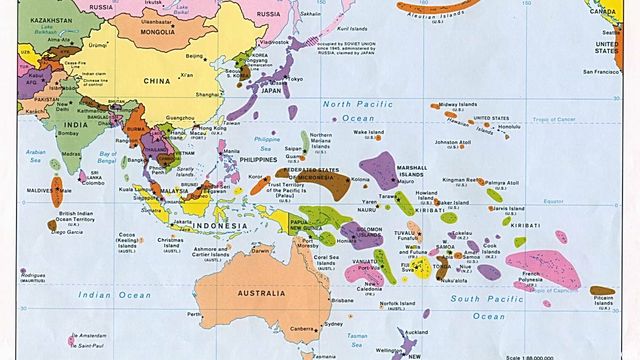Isolationists Score While Hagel Scrambles To Maintain US Power; Lockheed To Furlough 3,000
Posted on
UPDATED: Lockheed Now Plans 2,400 Furloughs After DoD Decides To Bring Back Civilian Workers (10/7 at 12:45 p.m)
WASHINGTON: OK. That headline is deliberately provocative. But here’s the evidence. The president of the United States cancels an important trip to Asia — including the first visit by a president to the increasingly powerful state of Malaysia since 1966 — designed to help anchor our Pacific pivot. Meanwhile, Chinese President Xi Jinping swept through the region — including Malaysia — unchallenged.
If you want some idea of how the Chinese view this, read this from the South China Morning Post, a Hong Kong paper with close ties to the Chinese leadership:
“Analysts said the developments deal a potential blow to the Obama administration’s stated intention to concentrate more on Asia, where unease is rising over China’s growing might.
“‘Now, Xi has the floor to himself and it makes the US as a country, its political system and democracy look weak,'” said Ian Storey of Singapore’s Institute of Southeast Asian Studies. ‘Meanwhile, China looks flush with cash and full of confidence, and it is relatively stable at home.'”
The American government, meanwhile, suffers a completely artificial cash crisis with grave implications for our ability to govern, to credibly project force, to deter bad actors — all thanks to about a dozen members of a GOP faction in the House. To be fair, there are small elements of the Democratic Party who agree with the isolationist views of many in the Tea Party, but they have little influence because they are subsumed within the broader party. What would the authors of the Federalist Papers, who warned against factions, tell the Tea Party? They would, of course, celebrate the liberty that guarantees the faction the right to speak and to act. But they would also warn that the interests of the Republic require compromise and consideration of the greater good. They would also probably point to the limited influence of the Democratic isolationists as proof of the benefits of a Republic with many interests spread across income and geography.
Now the ripples are beginning to spread through the defense industry. The world’s biggest military contractor, Lockheed Martin, will lay off 3,000 people starting Monday.
“Unfortunately, we expect the number of employees affected by the shutdown to grow as we experience contractual actions and the impact of furloughs among DCMA (Defense Contract Management Agency) and other customer inspectors across our business and our suppliers’ businesses,” CEO Marilyn Hewson said in an email today. “In an effort to minimize the impact on our employees and their families, those affected will be directed to use available vacation time and floating holidays in lieu of being furloughed. Employees who don’t have sufficient vacation available will be advanced up to 40 hours. If the shutdown extends beyond available vacation time, employees will be transitioned to unpaid furlough leave.”
Meanwhile, allied leaders in South Korea, the rest of Asia and throughout Europe keep pressing our ambassadors and Defense Secretary Chuck Hagel on just what the federal government shut down means about America’s commitment to our common defense.
Defense Secretary Chuck Hagel scrambled during the week to reassure our South Korean and Japanese allies during his third trip to the region. We agreed to base several Global Hawk reconnaissance and intelligence drones in Japan, the first time we’ve based any UAV or RPA or whatever you want to call them there. The Chinese must be grinding their teeth over this as the U-2 successor can easily monitor the disputed seas between China and Japan. The Philippines, Vietnam, Indonesia, Singapore, Australia and other regional friends of the United States must be quite happy. Also, we’re sending some P-8s to Japan to keep an eye on submarine traffic in the region. That will bolster our ability to monitor Russian and Chinese submarines, both of crucial interest to Japan.
Finally, we announced final agreement to build a second Tippy Two (AN-TPY-2) radar in Japan to fill gaps in our coverage of the North Korean missile threat. (Former Defense Secretary Leon Panetta announced our intent to do this a year ago.)
Finally, a major foreign visit by a senior administration official wouldn’t be complete without a new agreement, in this case a U.S.-Japanese “strategic vision” for East Asia and the Pacific. What is it? Well, the State Department description doesn’t seem to indicate much that’s new, but here it is: “our shared values of democracy, the rule of law, free and open markets, and respect for human rights, will effectively promote peace, security, stability, and economic prosperity in the Asia-Pacific region.”
While Hagel did his best to remind China and North Korea of our capabilities and commitment to our allies , American troops remain on guard and on mission throughout the world even though they aren’t getting paid because of the federal government shutdown. OK, they will get paid, but that’s not the same. And, as Sen. Carl Levin, chairman of the Senate Armed Services Committee, noted on the Senate floor today, any family member unfortunate enough to lose someone in combat during the standoff will see what he called “truly outrageous” delay in receiving death benefits.
While the federal government remains crippled, the mandatory budget cuts known as sequestration grind on. While the amount of the cuts imposed by sequestration may be reasonable over time, the manner in which they are being made is not. The military must be allowed to plan and build a rational strategy. So this must also change and that will require support from the Tea Party.
The actions of the House faction shine a bright light on the fundamental commitments of the United States. Are we a nation committed to global and free commerce? If so, we must continue to field armed forces able to guarantee freedom of the seas and adherence to international law. Are we committed to ensuring the basic global rights to life and liberty enshrined in our Constitution and the United Nations Charter? If so, we need a global and expeditionary military, one that cannot be hamstrung and made to look ridiculous by the actions of a dozen people, elected or not.
Subscribe to our newsletter
Promotions, new products and sales. Directly to your inbox.


